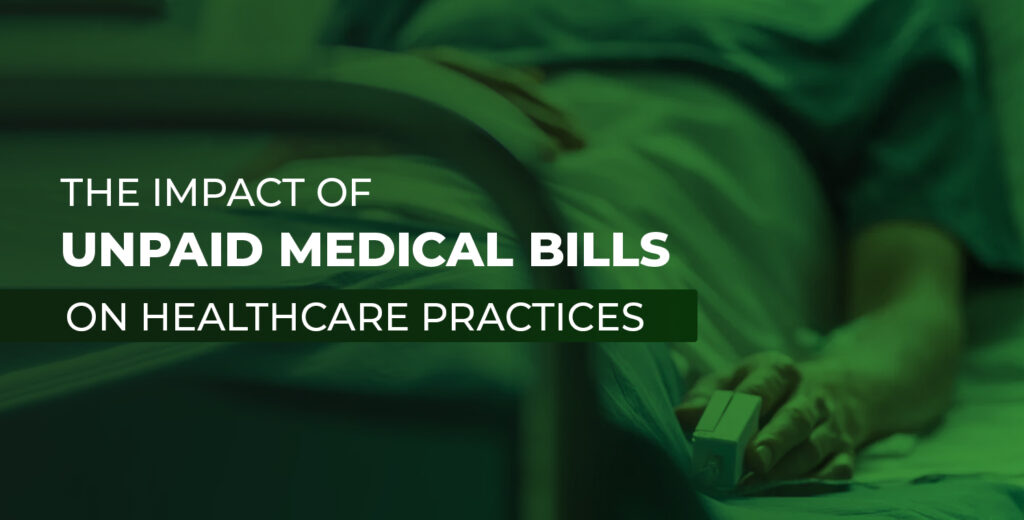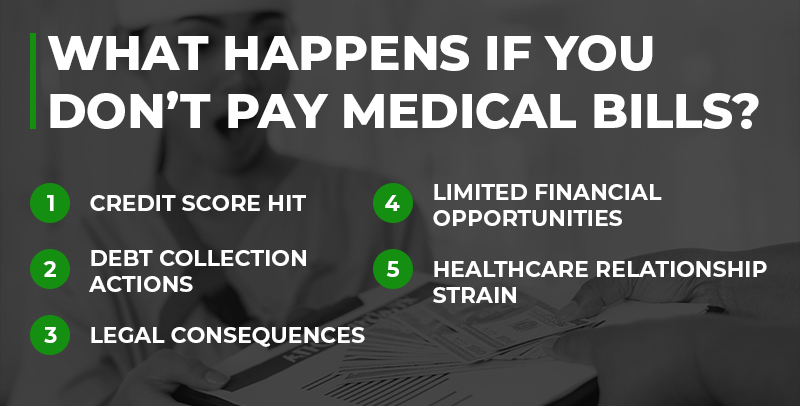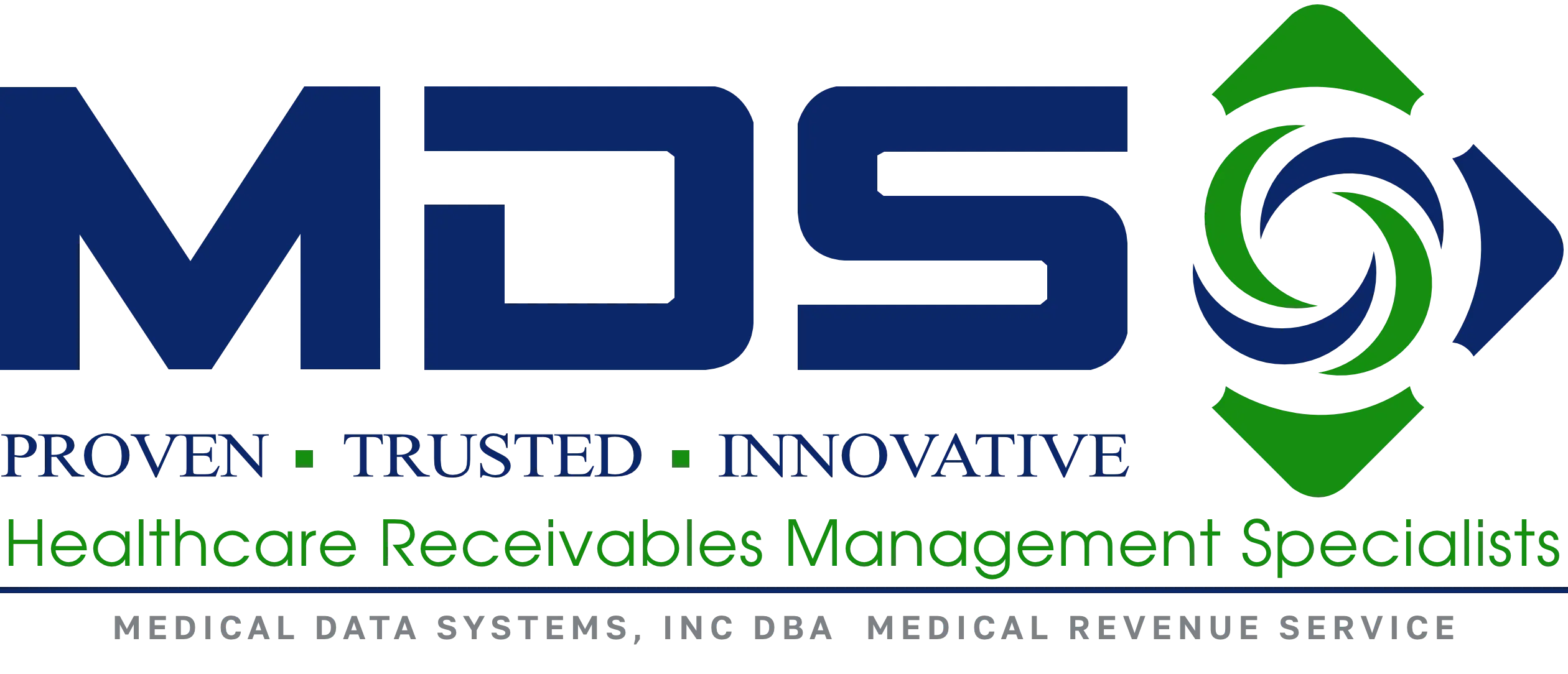In the United States, healthcare is renowned for its excellent, comprehensive treatments. But it is not very affordable, with many people spending their entire savings on a small treatment. That is why many patients may find it difficult to pay their medical bills.
While medical practitioners strive to provide quality care to their patients, the issue of consequences of unpaid medical bills significantly affects both patients and healthcare practices.
Let’s look at how unpaid medical bills can impact healthcare providers in the long run and some ways to recover their payments.

Impact of Unpaid Bills on Healthcare Providers
Unpaid medical bills have emerged as a growing concern in the United States. High healthcare costs, coupled with the complexities of insurance coverage often leave patients struggling to cover their medical expenses. When patients are unable to pay their bills, healthcare providers bear the brunt of the financial burden.
Here are 6 ways How unpaid medical bills consequences affect healthcare providers:
Financial Strain on Healthcare Practices:
One of the most important consequences of unpaid medical bills is the financial strain on healthcare practices. Unpaid bills can pile up and result in a significant reduction in revenue for medical practices. It becomes challenging for healthcare institutions to cover their day-to-day administrative costs, maintain their infrastructure, and invest in top medical instruments and new healthcare technologies. Even the day-to-day functioning of the practice can become difficult if they are unable to recover their medical debt.
Administrative Costs
Dealing with unpaid medical bills requires dedicated administrative resources. Healthcare practices need to handle medical collections, billing processes, follow up on unpaid bills, coordinate payments, and more. This requires dedicated staff and a hefty budget. Moreover, they need to coordinate with insurance companies to clear patient claims and get payments. These administrative tasks divert valuable resources away from patient care and operational improvement, all while increasing the unpaid medical bills consequences that the practice faces.
Patient-Provider Relationships
The strain caused by the consequences of unpaid medical bills can also affect patient-provider relationships. The healthcare service needs to collect unpaid bills but also ensure the patients receive the required treatment for a steady recovery. Patients who are burdened by medical debt may avoid seeking necessary care due to financial concerns. This can lead to delayed diagnoses, worsening health issues, and in some cases, even more costly treatments later on.
Legal Action
Sometimes, healthcare practices may have to take legal action for medical debt collection. While this is a last resort, it can be a lengthy and costly process for both parties involved. The practice may end up spending more on legal costs than the actual amount of bills pending. Moreover, legal disputes can badly affect the practice’s reputation in the community. This can increase their financial burden in the future.
Quality of Patient Care
To provide quality care to patients, healthcare practices require necessary medical equipment, a well-trained experienced staff, and access to medicines among other things. With delayed payments and unpaid medical bills consequences, healthcare practices may not have enough funds to pay for these necessities. Over time, the consequences of unpaid medical bills can make it tough for practices to take care of their patients.
Ethical Dilemma
Unpaid medical bills consequences can create ethical dilemmas for healthcare providers. On one hand, they are committed to providing the best possible treatment to their patients irrespective of the patient’s ability to pay. But they also need financial stability to keep their practice up and running. Striking the right balance between these ethical considerations can be challenging.
Addressing Unpaid Medical Bills Consequences
To mitigate the impact of the consequences of unpaid medical bills, hiring a medical debt collection agency is a viable solution. These agencies specialize in navigating complex medical billing and debt collection while ensuring compliance with healthcare regulations.
By outsourcing medical bill collections, healthcare providers can improve cash flow, allocate resources efficiently, and maintain positive patient relationships—all while maximizing the recovery of overdue balances.
How Unpaid Medical Bills Consequences Affect the Quality of Patient Care
Incurring medical debt can also have far-reaching consequences for patients. Apart from financial strain, unpaid medical bills consequences can affect their mental health, their credit score, and their way of living.
If you are finding it difficult to pay your medical bills, you might have a lot of questions. Here are some common questions with answers to help clear your doubts.
What happens if you don’t pay medical bills?

Unpaid medical bills have a profound impact on patients, causing significant financial stress and burden. With mounting debt, the patient may avoid or delay future medical treatment.
Moreover, unpaid bills can strain patient-provider relationships, making patients hesitant to discuss payment options or medical concerns with their doctors. If left unpaid, it can also affect the patient’s credit score, creating problems with housing and employment. Not paying your medical bills can also make it difficult to rent an apartment or secure certain types of employment.
Do medical bills affect your credit?
Yes, unpaid medical bills can affect your credit in the United States. When bills are sent to Medical debt collection agencies or reported as delinquent to credit bureaus, it can result in a lower credit score. This makes it harder for you to obtain loans, credit cards, and lower interest rates.
It is important to have an open and honest discussion with the healthcare provider or the medical debt collection agency. Discussing possible repayment options according to your financial situation will help reduce the burden on you and also avoid negative effects on your credit score.
Conclusion
Unpaid medical bills consequences are a pressing concern for healthcare practices, impacting finances, patient care, and administrative resources. As healthcare providers, it’s essential to prioritize both patient care and financial sustainability.
If you want a smooth medical collections process, consider hiring (Medical Debt Collections) MDS Agency. We use AI technology to identify medical debt and help collect your pending payments without any hassle. We also provide Extended Business Office services to help healthcare providers like you streamline your revenue cycles for effortless billing processes and increased revenue.
Contact us today to secure the future of your practice and the well-being of your patients.
